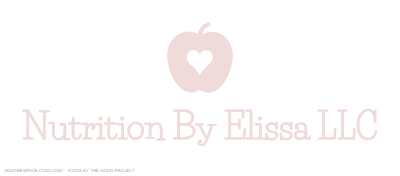Weight is just one measurement of many that can be taken to indicate health. Weight is not the sole indicator of health, and measuring progress solely based on the number on the scale is not only counterproductive, but can also be mentally harmful. Too often, we become fixated on our weight, foolishly believing that this number is an accurate measure of our progress and health, and react to small fluctuations in weight that really don’t mean much. Becoming fixated on the number on the scale often leads to obsessive patterns of eating and exercising that are damaging and unhealthy. The number we see on the scale measures one thing: our weight. It doesn’t tell us how much of our weight is made up of body fat, muscle mass, or bone destiny, and doesn’t account for changes in weight due to hormone levels or water retention. Because of this, we can't accurately assess small fluctuations we see in our weight. We don’t know if a small increase on the scale is actually a weight gain, or if it can actually be attributed to muscle gain, water retention, or hormone fluctuations. Because of this, it is important not to get too fixated on the number on the scale because it is only one of many important indicators of health. Here are some other ideas for measuring progress other than the scale.
Track healthy habits: there are many other ways to set, track, and achieve health goals that don’t relate to weight. For example, you can set a goal to drink more water, eat more fruit, or get in more joyful movement. You can then measure and track your progress in these goals on a weekly and monthly basis. This is a great way to take concrete steps towards measuring and tracking progress that don’t involve the number on the scale.
Energy levels: By using intuitive eating, we get in touch with how certain food makes our bodies feel. When we eat certain foods, we may feel sluggish and tired. Our minds feel fuzzy, and our bodies feel weak and slow. Alternatively, when we consume more foods that make our bodies feel good through gentle nutrition, we feel more energized. When our brains and bodies are given proper nourishment and fuel, our energy levels soar. Paying attention to energy levels, and how our bodies respond to different patterns of eating, can be a great way to measure progress in living a healthier lifestyle.
Stress levels and mood: Mood and stress levels are another major area that are impacted by healthier lifestyle. When we are undernourished and under fueled, our neurotransmitters aren't firing optimally, which can leave us feeling irritable and low. When we begin to live a healthier lifestyle that isn’t dictated by the scale, our mood and stress levels often improve dramatically. Being aware of mood and stress can also be a great way to measure progress.
When we are striving to live a healthier lifestyle it can be easy sometimes to get fixated on the number on the scale, and to attribute meaning to the number we see. However it is important to remember that the scale is not always accurate, and certainly does not give us an accurate picture of our overall health. It is important to focus less on the scale and more on how you feel. There are many other ways to measure progress other than the scale. The scale does not define you.
